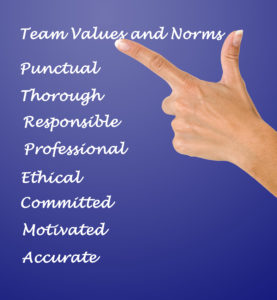
Why is commitment of the utmost importance in your life? Your ability to commit is the most important skills you can develop. It is one of the primary reasons for success or failure in life.
Commitment is the strategy utilized to match your aims. Consequently, it may be raised or lowered accordingly.
In her book, Commit to Win, author Heidi Reeder, PhD (©2014, Hudson Street Press) draws upon decades of research to create an equation for commitment made up of four variables. Dr. Reeder expresses commitment as follows:
(Treasures – Troubles) + Contributions – Choices = Level of Commitment.
Essentially, when you determine your level of commitment to a particular goal, course of action, relationship, job, or entrepreneurial pursuit, you begin with a benefits and burdens analysis, or treasures versus troubles. Adapted from economic theory, what we first do, according to the author, is examine the good things we achieve or receive from committing to something, balanced out by the problems or drawbacks to it.
Then, we factor in our contributions, or what we’ve invested towards a particular end. For example, if you’re not sure if you want to continue to practice law, you might note that you invested a lot of money and time going to law school, which may increase your level of commitment to staying in your profession. Someone that is married for 40 years has more invested in a relationship than someone miserable two months after the honeymoon. This factor also explains why a gambler pours money into a slot machine, continuing to lose. The bettor has already “invested” lots of quarters into the one armed bandit, and therefore remains steadfast to his course of action, even though it may have no logical basis.
Finally, the number of choices and how attractive they are impacts how committed we are to a particular action, person or thing. And our perception of choices is key. The woman who six months after her nuptials is courted by several handsome, wealthy and eligible bachelors, may find it harder to commit to her new husband through the trying times in which she finds herself. On the other hand, if you believe your choices are limited, you will wind up being more dedicated to something. You may be unhappy in your job, but if you’re 62 years old, with minimal education, and feel you have poor prospects for something else, you will be more likely to suck it up and stick with it through retirement than someone who believes the world is their oyster.
So when you are viewing resolutions, or goals that you make, it may be helpful to examine the commitment equation. Reviewing your treasures, troubles, contributions and choices will help you determine a level of commitment that you may have to a particular goal. If upon further analysis, you find your commitment level wanting, you have several options:
Can you increase the rewards or the treasure you might receive from achieving your goal?
Is there some way that you can lower the troubles or drawbacks to your course of action?
Can you invest or contribute more towards your goal so that you will be more likely to stay on your path?
Finally, can you downplay the alternatives that are available to you, reducing your choices, or the attractiveness of them, to help raise your level of commitment?
And, while we typically don’t think of reducing commitment in the context of New Year’s resolutions, know that if you are on a bad path, you can utilize the same equation to lower your chances of remaining on that journey. Reducing commitment may be the ticket out of an unhealthy relationship, a bad job, or poor eating habits. According to Dr. Reeder, the equation is designed to work both ways.